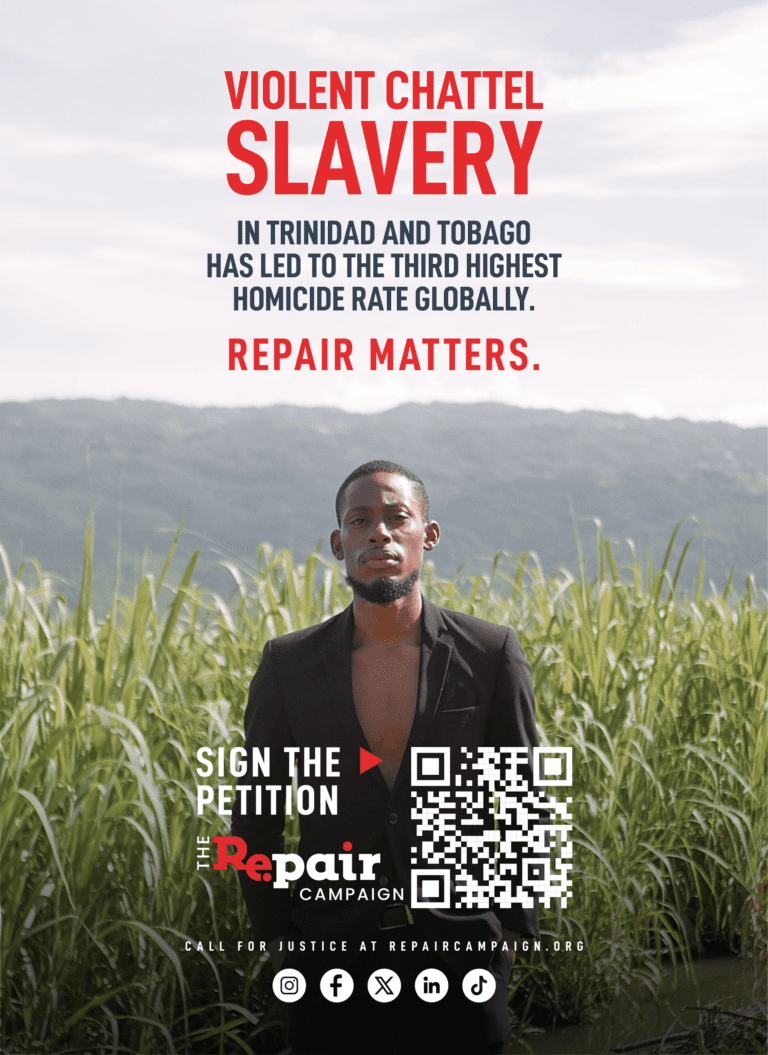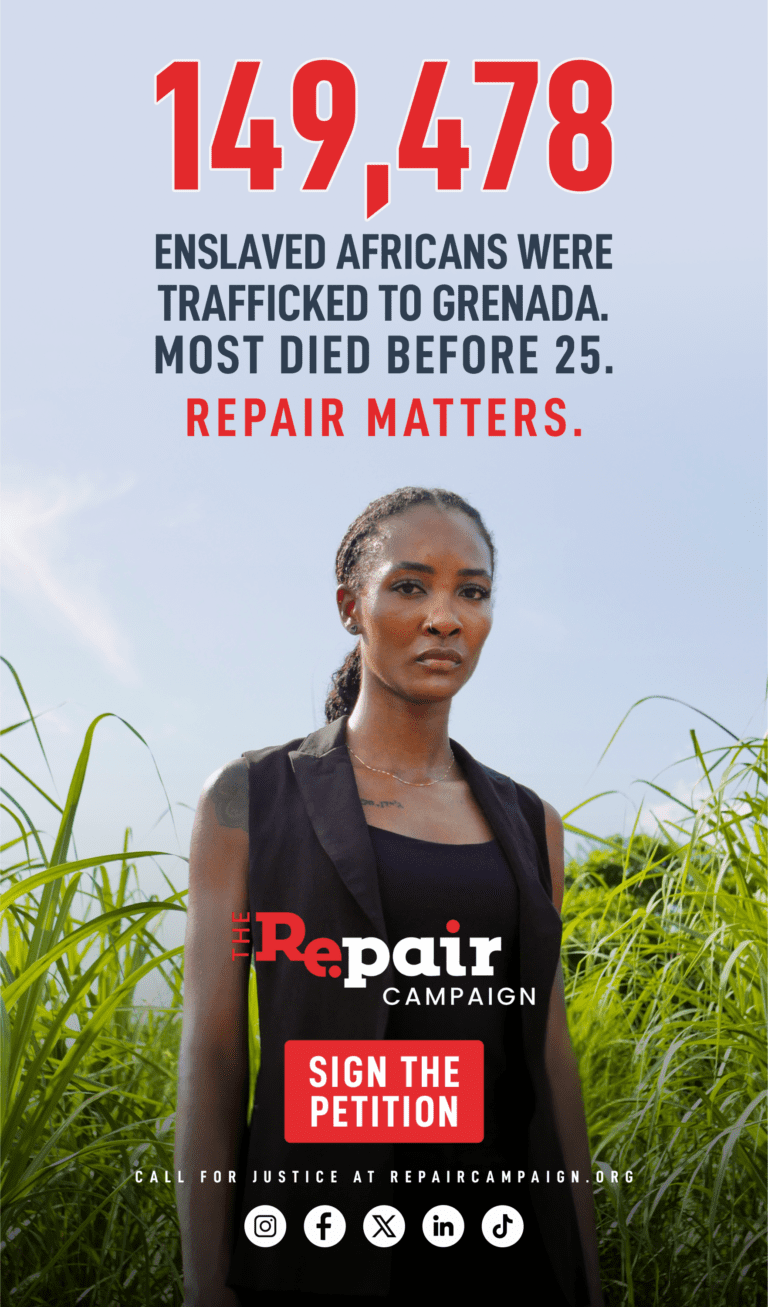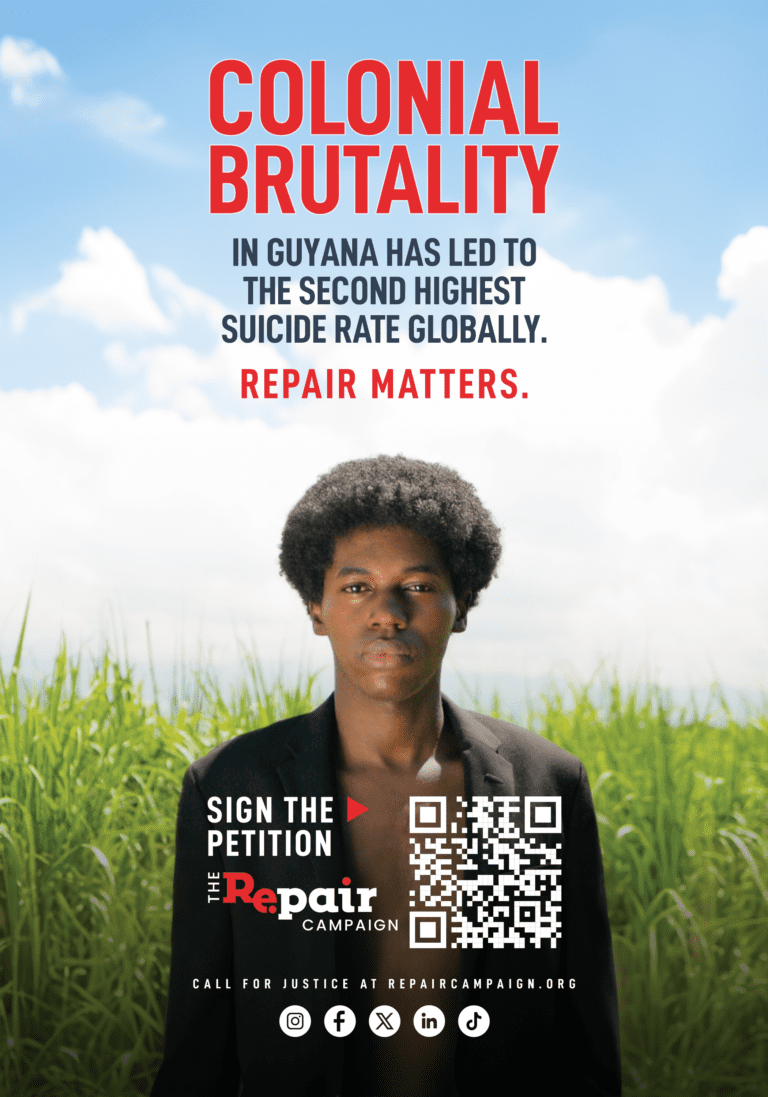Reclaiming Our Story: Reflections from a Caribbean Cane Field
October 21, 2024
This summer, a group of young volunteers gathered in the sugarcane fields of Jamaica for an unconventional photoshoot as part of The Repair Campaign’s ongoing efforts to raise awareness about reparations for chattel slavery. The photoshoot reframed the typical imagery of sugarcane fields usually associated with chattel slavery by contrasting this historic site of atrocity with powerful visuals of modern-day young people, empowered by the knowledge of their history to seek justice for their enslaved ancestors.
After the shoot, we spoke with some of the volunteers and listened to their reflections on the experience of connecting the past with present.
Bradford, 33
For Bradford, the experience was a sobering wakeup call to the unbearable realities of chattel slavery, and an awe-inspiring reminder of the strength of his ancestors.
“We’ve only been out here for maybe an hour, and I’m sweating like crazy, I’m hot… and people were doing this from like 5 or 6 in the morning back until dusk. They would do this for the entire day – cutting cane, picking cotton in some cases – and then they’d wake up and do the same thing again the next day, and for the rest of their lives with the threat of whippings, beatings and being killed. That’s mind blowing to me. That’s crazy.”
“To think that they were treated as less than human, working in these conditions with no choice and no end in sight—it’s a lot to process. But that’s why I really think we deserve reparations. We’re owed that.”
Shelly, 28
For Shelly, the most impactful part of the experience was reflecting on how enslaved people resisted the horrific abuse on plantations, and the eerie feeling that came with the thought of what took place on the ground on which she was standing.
“I would have run away long time. You couldn’t keep me here.”
“Can you imagine how much courage it must have took for the slaves who ran away or actually fought back? It must have felt impossible. But here we are, thanks to them.”
After learning that at the time of Emancipation, the British enslavers received compensation for their loss of ‘property’, Shelly was baffled and outraged.
“You’re telling me after all of that, the slave owners were the ones who got paid even more money? And all now we can’t get nothing? No man, reparations have to come. If British taxpayers could keep paying off that loan until 2015, then Britain can pay reparations to us too even if it takes another however many hundred years.”
Jahvar, 26
For Jahvar, the photoshoot wasn’t just about remembering the past—it was also about recognizing the harmful legacies that still exist today.
“When you look at all the violence in Jamaica – it’s no wonder! When you think about all the violence that happened to us right here, for generations upon generations. This is what we learned so it got passed down to today.”
He also commented on the ways this legacy of oppression continues to show up in the structures and rules enforced by workplaces.
“I work in corporate Jamaica. And just because of how my hair grows, I still feel like it’s not ‘acceptable’ for me to wear it natural to work, even in 2024 – like it’s still frowned upon. How does that make sense?”
“That’s the legacy of slavery right there. We’re still living in a world where colonial values dictate what we should look like, what’s considered ‘professional’, and how we should behave. So I see reparations as not just about money. It’s about giving us the dignity and the freedom we’ve always deserved.”
“So I’m really glad to be a part of a campaign like this trying to build better future for young people, and I’m glad to support however I can because it’s time for a change.”
Join the calls for Justice
The experience was a stark reminder that while the physical chains of slavery may have been broken, the legacies of violence, oppression and inequality remain across the entire Caribbean region. Although each country has had a unique experience with colonialism – indigenous genocide, chattel slavery, and indentureship – it is time for a united front in calling for justice for these historic crimes.
Join the calls for reparatory justice by signing The Repair Campaign’s petition for reparations and by sharing it with others.
We are inspired that a growing number of young people have responded and continue to respond to the call to stand for justice. This intergenerational effort must involve our Caribbean youth taking up the mantle, to honour the generations who came before and keep the spirit of resistance alive for those generations yet to come.
You can view the full campaign here.



